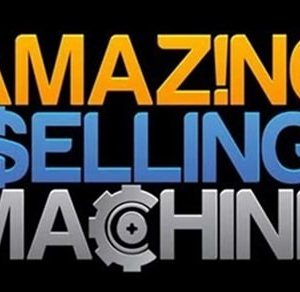[GroupBuy] AI Native Engineer – Zen van Riel
$30.00 Original price was: $30.00.$15.00Current price is: $15.00.
In an era where artificial intelligence is rapidly reshaping industries and daily life, the demand for skilled professionals capable of building and deploying these transformative technologies is soaring. The title of AI Native Engineer is emerging as a beacon for those seeking not just a career, but a future-proof path in the technology landscape. Zen van Riel’s program, as highlighted in provided excerpts, is specifically designed to cultivate this next generation of innovators, equipping individuals with the practical skills needed to navigate and excel in the complex world of AI system development.
Table of Contents
Navigating the AI Revolution – The Rise of the AI Native Engineer
The specter of widespread job displacement due to AI is a recurring theme in public discourse. While automation undoubtedly impacts certain roles, it simultaneously creates entirely new opportunities for those equipped to harness the power of artificial intelligence. This is where the concept of the AI Native Engineer takes center stage. Far from being threatened by AI, these professionals are the architects of its implementation, transforming its potential from an abstract concept into tangible, functional systems.
Zen van Riel’s program, as evidenced by the provided data, positions itself as a direct response to this evolving landscape, offering a pathway to becoming part of the solution rather than a casualty of the change. The program’s core message is clear: embrace AI, learn to build with it, and secure a thriving, high-demand career.
The provided excerpts strongly emphasize the lucrative nature and significant growth within the AI Engineering field. This isn’t just about a niche specialization; it’s about a fundamental shift in the required skillset for technological innovation. Companies are no longer solely focused on theoretical AI research; they are actively seeking individuals who can translate cutting-edge models into robust, production-ready applications.
The reported 3x growth in demand for AI Engineers compared to other AI-related positions underscores this critical need. Zen van Riel’s program appears to be acutely aware of this market reality, tailoring its curriculum to address this specific skills gap. By focusing on the practical aspects of building full-stack AI systems, from initial proof-of-concept to seamless deployment, the program directly aligns participants with the demands of the modern tech industry.
This focus on practical application is a crucial differentiator, moving beyond academic exploration into the realm of real-world impact. The program’s promise to “turn AI from a threat into your biggest advantage” resonates deeply with the current anxieties surrounding automation, offering a proactive and empowering solution. It reframes the narrative, presenting AI not as an insurmountable challenge, but as a powerful tool for those who possess the expertise to wield it effectively.
This positive framing, coupled with the emphasis on high demand and top salaries, makes a compelling case for pursuing a career as an AI Native Engineer. The program’s success hinges on its ability to deliver on this promise, equipping participants with the practical skills and confidence required to thrive in this rapidly evolving field.
The Shifting Landscape of Tech Careers
The traditional boundaries between software engineering, data science, and machine learning are blurring. The rise of the AI Native Engineer reflects this convergence, demanding a skillset that encompasses not just model development but also system architecture, deployment, and maintenance.
This evolution is driven by the increasing sophistication of AI systems and their integration into core business functions. Companies are no longer content with siloed AI projects; they require engineers who can build end-to-end solutions that are scalable, reliable, and deeply integrated into their existing infrastructure. This requires a holistic understanding of the AI lifecycle, from data acquisition and preprocessing to model training, deployment, monitoring, and continuous improvement.
The AI Native Engineer is the professional who can navigate this entire spectrum, bridging the gap between theoretical AI research and practical, production-ready applications. This expanded scope of responsibility is what makes the role so critical and, consequently, so highly compensated. It’s a move away from highly specialized roles towards a more versatile and adaptable engineering profile.
The demand for these versatile engineers is further fueled by the rapid pace of innovation in the AI field. New models, frameworks, and deployment techniques are constantly emerging, requiring engineers who can quickly adapt and integrate these advancements into existing systems. This necessitates a strong foundation in core engineering principles, coupled with a continuous learning mindset.
The AI Native Engineer is therefore not just a specialist in AI; they are also a skilled software engineer, capable of building robust and maintainable systems. This combination of skills is what sets them apart and makes them invaluable to organizations seeking to leverage the full potential of artificial intelligence. The program’s focus on full-stack AI systems directly addresses this need, providing participants with the diverse skillset required to excel in this dynamic environment.
Why Companies are Prioritizing AI Implementation
The competitive advantage offered by AI-powered solutions is a major driver for companies investing heavily in AI implementation. From optimizing supply chains and personalizing customer experiences to automating complex tasks and generating novel insights, AI is transforming how businesses operate and compete.
However, realizing this potential requires more than just developing sophisticated models. It demands the ability to integrate these models into production systems that can handle real-world data, scale to meet user demand, and operate reliably over time. This is where the AI Native Engineer becomes indispensable. Companies are realizing that having brilliant data scientists is not enough; they need engineers who can take those models and turn them into tangible business outcomes. This shift in focus explains the reported 3x growth in demand for AI Engineers compared to other AI-related roles. The need is not just for those who can develop AI, but for those who can implement it effectively.
The ability to build production-ready systems is particularly crucial for companies operating at scale. A proof-of-concept is valuable, but it cannot deliver the same impact as a system that is seamlessly integrated into existing workflows and used by thousands or even millions of users. Zen van Riel’s program appears to understand this critical distinction, emphasizing the transition from proof-of-concept to production as a core component of its curriculum. By teaching participants how to build full-stack AI systems, the program directly addresses the needs of companies seeking to leverage AI for real-world impact. This focus on implementation is what makes the AI Native Engineer such a valuable asset in today’s technology landscape.
Zen van Riel’s Journey as a Blueprint for Success
Zen van Riel’s personal success story, highlighted in the provided excerpts, serves as a powerful testament to the potential of pursuing a career as an AI Native Engineer. Their trajectory, moving rapidly from entry-level to Senior AI Engineer at a major tech company like GitHub, provides a compelling narrative for aspiring AI professionals.
This personal journey is strategically leveraged within the program’s messaging to build credibility and demonstrate tangible outcomes. It’s more than just a theoretical curriculum; it’s a pathway validated by the instructor’s own experience. By sharing their story, Zen van Riel offers participants a tangible example of what is achievable with the right skills and dedication. This personal connection can be a significant motivator, providing a sense of reassurance and inspiration to those embarking on their own AI engineering journey. The fact that Zen has created AI systems used by thousands further underscores their practical expertise and the real-world applicability of the skills taught in the program.
This personal touch adds another layer of value to the program. It suggests that the guidance provided is not just theoretical but is rooted in practical, hands-on experience in building and deploying AI systems at scale. This kind of insight from a seasoned professional can be invaluable for navigating the complexities of the field and avoiding common pitfalls.
The program’s emphasis on personalized guidance from Zen further reinforces this idea, suggesting a mentorship-like relationship that can provide targeted support and accelerate learning. Ultimately, Zen van Riel’s success story serves as a powerful marketing tool, demonstrating the program’s potential to equip individuals with the skills and knowledge needed to achieve similar levels of professional success as an AI Native Engineer. It transforms the program from a theoretical course into a practical pathway to a thriving career.
The Program’s Blueprint – Building a Full-Stack AI Native Engineer
The structure of Zen van Riel’s AI Native Engineer program is designed to provide a comprehensive and practical learning journey, addressing the diverse needs of both beginners and those with some prior experience. The “Complete AI Engineering Roadmap” suggests a well-defined path, guiding participants through the essential concepts and skills required to become a proficient AI Native Engineer.
This structured approach is particularly valuable for individuals entering a complex and rapidly evolving field like AI. Having a clear roadmap helps demystify the learning process and provides a sense of direction, preventing participants from feeling overwhelmed by the sheer volume of information available.
The program’s emphasis on building “full-stack AI systems” is a crucial differentiator, aligning directly with the reported industry demand for engineers who can take AI models from concept to production. This goes beyond simply training models; it encompasses the entire process of integrating AI into software systems, including data pipelines, API development, deployment strategies, and monitoring. This holistic approach is what defines the AI Native Engineer and makes them so valuable to companies.
It’s about understanding how all the pieces of an AI system fit together and being able to build and maintain them effectively. The program’s curriculum, covering “AI Fundamentals” and “AI Agents,” suggests a balanced approach, providing a strong theoretical foundation while also exploring advanced topics like intelligent agents. This combination of fundamental knowledge and cutting-edge concepts prepares participants to tackle a wide range of AI engineering challenges. The inclusion of guidance on “building systems” further reinforces the program’s practical focus, ensuring that participants develop the hands-on skills needed to implement real-world AI solutions.
A Comprehensive Roadmap for AI Mastery
The Complete AI Engineering Roadmap outlined in the program likely covers a range of modules, starting with foundational AI concepts and progressing to more advanced topics in system design and implementation.
A strong foundation in AI Fundamentals is essential for any aspiring AI Native Engineer. This would likely include topics such as machine learning algorithms, deep learning architectures, natural language processing, and computer vision. Understanding the underlying principles of these technologies is crucial for making informed decisions about model selection, training, and deployment.
The program’s promise of “Clear fundamentals for beginners” suggests that it caters to individuals with limited or no prior experience in AI, providing a solid starting point for their learning journey. This accessibility is important for broadening the talent pool and enabling individuals from diverse backgrounds to enter the field.
Moving beyond the fundamentals, the roadmap likely delves into the practical aspects of building AI systems. This would involve learning about data pipelines, feature engineering, model evaluation, and deployment strategies. The focus on “AI Agents” suggests an exploration of more advanced AI concepts, such as reinforcement learning and autonomous systems.
This indicates that the program aims to equip participants with the skills needed to develop not just traditional machine learning models, but also more sophisticated AI systems that can interact with their environment and make decisions autonomously. The comprehensive nature of the roadmap ensures that participants gain a well-rounded understanding of the AI engineering landscape, preparing them for a wide range of roles and responsibilities.
Bridging the Gap – From Concept to Production
The ability to take an AI model from a proof-of-concept to a production-ready system is a critical skill for an AI Native Engineer. This involves more than just coding; it requires an understanding of software engineering best practices, cloud infrastructure, and deployment tools.
The program’s emphasis on this transition is highly relevant to the needs of the industry. Many organizations struggle to operationalize their AI models, leaving valuable insights and capabilities untapped. The AI Native Engineer is the professional who can bridge this gap, transforming research prototypes into scalable and reliable production systems. This involves tasks such as setting up data pipelines, building APIs to expose model predictions, deploying models to cloud platforms, and implementing monitoring and logging to track performance and identify issues. The program’s guidance on “building systems” likely covers these essential aspects of production deployment.
Learning how to build robust and maintainable AI systems is crucial for long-term success. This involves adopting best practices in software engineering, such as version control, automated testing, and continuous integration/continuous deployment (CI/CD). These practices ensure that AI systems are reliable, scalable, and easy to update and maintain. The program’s focus on this practical aspect of AI engineering is a key strength, distinguishing it from programs that focus solely on model development. By equipping participants with the skills needed to build production-ready systems, the program prepares them for the real-world challenges of deploying and managing AI in an enterprise setting.
Personalized Guidance – Learning from an Industry Veteran
The inclusion of “Personalized Guidance from Zen” is a significant selling point for the program, offering participants the opportunity to learn directly from a seasoned industry professional.
Having access to a Senior AI Engineer from a major tech company like GitHub provides invaluable insights and mentorship. Zen’s experience in creating AI systems used by thousands speaks to their practical expertise and ability to build impactful solutions. This personalized guidance can take various forms, such as one-on-one consultations, code reviews, or Q&A sessions. The ability to ask questions and receive feedback directly from an experienced professional can significantly accelerate the learning process and provide tailored support to address individual challenges.
This personalized approach also adds a layer of accountability and motivation. Knowing that you have a mentor guiding you through the learning process can help you stay on track and overcome obstacles. Furthermore, Zen’s experience as a Senior Engineer means they can offer insights into career development, interview preparation, and navigating the corporate landscape. This kind of mentorship is often invaluable for individuals seeking to break into a competitive field like AI engineering. The emphasis on personalized guidance reinforces the program’s commitment to the success of its participants, providing them with the support they need to thrive as AI Native Engineers.
Industry Validation – Why Companies Seek AI Native Engineers
The provided data strongly suggests that the demand for AI Native Engineers is not just a trend, but a fundamental shift in the hiring priorities of companies across various sectors. The explicit mention of “Companies seek AI Engineers (3x growth) who can implement production systems” underscores the critical need for professionals who can translate theoretical AI concepts into practical, real-world applications.
This highlights a significant gap in the current talent pool, where there is a greater supply of individuals with theoretical AI knowledge than those with the practical skills required to build and deploy AI systems at scale. Zen van Riel’s program appears to be strategically positioned to address this gap, focusing its curriculum on the specific skills that companies are actively hiring for.
The emphasis on the ability to build “full-stack AI systems” is key. Companies are increasingly looking for engineers who can handle the entire AI lifecycle, from data preparation and model training to deployment, monitoring, and maintenance. This holistic skillset is what defines the AI Native Engineer and makes them so valuable in today’s competitive landscape.
It’s not enough to simply develop a powerful AI model; it needs to be integrated into existing workflows, scaled to handle large volumes of data, and maintained over time to ensure optimal performance. The program’s focus on this full-stack approach aligns perfectly with the reported industry demand, equipping participants with the comprehensive skillset required to succeed in these roles. The data also suggests that companies are willing to pay top salaries for these highly sought-after professionals, further reinforcing the lucrative nature of a career as an AI Native Engineer.
This combination of high demand and competitive compensation makes the field an attractive option for individuals seeking a challenging and rewarding career path. The program’s messaging effectively highlights these key benefits, appealing to individuals who are looking for a way to future-proof their careers in the age of AI.
The Gap Between AI Research and Production
While academic research and theoretical advancements in AI are crucial, there is a significant gap between developing a cutting-edge model and deploying it in a real-world production environment. This is where the expertise of the AI Native Engineer becomes essential.
Many organizations have invested in AI research teams, but they lack the engineering talent needed to operationalize the insights and models generated by these teams. This can lead to promising AI projects languishing in the research phase, failing to deliver tangible business value. The AI Native Engineer bridges this gap by possessing the skills to build robust, scalable, and reliable systems that can integrate AI models into existing infrastructure. This involves a deep understanding of software engineering principles, cloud computing, data pipelines, and deployment strategies.
The ability to take a model from a Jupyter notebook to a production environment requires a different set of skills than those typically taught in academic AI programs. It involves considering factors such as latency, throughput, scalability, security, and maintainability. The program’s focus on building “full-stack AI systems” directly addresses this need, equipping participants with the practical skills required to overcome the challenges of production deployment. By focusing on this crucial aspect of AI engineering, the program prepares participants for the real-world demands of the industry, making them highly attractive to companies seeking to leverage AI for competitive advantage.
The Value Proposition of a Full-Stack Skillset
In today’s fast-paced technological landscape, the ability to work across the entire AI stack is a significant advantage. Companies are increasingly seeking engineers who can handle everything from data ingestion and model training to deployment and monitoring.
This full-stack skillset allows AI Native Engineers to take ownership of the entire AI lifecycle, ensuring that systems are built efficiently, reliably, and sustainably. It reduces the need for handoffs between different teams and enables faster iteration and deployment of new AI capabilities. Furthermore, having a comprehensive understanding of the entire stack allows engineers to identify and address potential bottlenecks and issues throughout the system. This holistic perspective is crucial for building robust and scalable AI solutions.
The program’s emphasis on building “full-stack AI systems” directly aligns with this industry trend. By covering all aspects of the AI lifecycle, from data to deployment, the program equips participants with the versatile skillset that companies are actively hiring for. This comprehensive approach makes participants more valuable to organizations and opens up a wider range of career opportunities. The ability to contribute across the entire stack is a key differentiator for the AI Native Engineer and a major reason for their high demand and compensation.
Concrete Examples of AI Engineering in Action
To further illustrate the practical application of AI engineering skills, consider the following examples of real-world AI systems that require the expertise of an AI Native Engineer:
- Recommendation Systems: Building and deploying systems that personalize product recommendations for e-commerce platforms requires expertise in data pipelines, model training (collaborative filtering, deep learning), and scalable deployment to handle millions of users.
- Fraud Detection Systems: Developing real-time fraud detection systems involves integrating machine learning models into transaction processing pipelines, ensuring low latency and high accuracy, and implementing monitoring to detect new fraud patterns.
- Autonomous Vehicles: The development of self-driving cars relies heavily on AI engineering to integrate sensors, perception models, planning algorithms, and control systems into a complex, real-time system that can operate safely in dynamic environments.
- Natural Language Processing Applications: Building applications like chatbots, sentiment analysis tools, or machine translation systems requires expertise in processing and understanding natural language, training and deploying transformer models, and integrating these models into user-facing applications.
- Computer Vision Systems: Developing systems for image recognition, object detection, or video analysis involves training and deploying deep learning models, integrating them with camera feeds or image databases, and building pipelines for processing and analyzing visual data at scale.
These examples highlight the diverse range of applications for AI engineering and the critical role that AI Native Engineers play in bringing these transformative technologies to life. The program’s focus on practical skills and building full-stack systems prepares participants to contribute to these and many other exciting AI projects.
The Zen van Riel Difference – Practicality, Credibility, and Support
What sets Zen van Riel’s AI Native Engineer program apart, as suggested by the provided excerpts, lies in its potent combination of practicality, the instructor’s personal credibility, and the promise of personalized support. This tripartite approach aims to provide participants with not just theoretical knowledge, but the tangible skills and confidence needed to succeed in the competitive field of AI engineering.
The emphasis on “Learn to build full-stack AI systems – the skill companies are actually hiring for” is a clear indication of the program’s practical orientation. It moves beyond abstract concepts and delves into the real-world application of AI, focusing on the skills that are directly relevant to industry needs. This practicality is likely a major draw for individuals seeking a program that will equip them with job-ready skills.
Zen van Riel’s personal journey, highlighted by the quote “I went from entry-level to Senior AI Engineer at big tech in record time,” serves as a powerful testament to the effectiveness of the approach taught in the program. This personal success story provides a level of credibility that is hard to replicate. It suggests that the instructor has not only mastered the theoretical aspects of AI engineering but has also successfully navigated the practical challenges of building and deploying AI systems in a demanding industry environment. This firsthand experience can be invaluable for participants, offering insights and guidance that go beyond what can be found in textbooks.
The program leverages this credibility to position itself as a proven pathway to a successful career in AI engineering. Furthermore, the promise of “Personalized Guidance from Zen” adds a layer of support that can significantly enhance the learning experience. Having direct access to an experienced professional for guidance and feedback can be crucial for overcoming challenges, clarifying concepts, and accelerating progress. This personalized support differentiates the program from more generic online courses and suggests a commitment to the individual success of each participant.
Learning by Doing – Building Production-Ready Systems
The program’s strong focus on building production-ready AI systems is a key differentiator. This “learning by doing” approach ensures that participants develop the practical skills needed to succeed in real-world AI engineering roles.
This likely involves hands-on projects where participants build full-stack AI applications, from data ingestion and model training to deployment and monitoring. This practical experience is invaluable for understanding the challenges and complexities of building and deploying AI systems in a production environment. It allows participants to apply the theoretical concepts they learn to real-world scenarios, reinforcing their understanding and building their confidence. The program’s emphasis on the transition “Systems from proof-of-concept to production” highlights its commitment to equipping participants with the skills needed to operationalize AI.
Building production-ready systems involves more than just writing code. It requires an understanding of topics such as scalability, reliability, security, and cost optimization. The program likely covers these important aspects, ensuring that participants are prepared to build systems that can handle real-world traffic and operate reliably over time. This practical focus is what makes the AI Native Engineer so valuable to companies and what makes this program particularly relevant to the current needs of the industry. It moves beyond theoretical exploration into the realm of practical application, providing participants with the skills that are directly transferable to real-world job responsibilities.
The Power of a Proven Trajectory
Zen van Riel’s personal success story is a powerful marketing tool for the program, demonstrating a clear and achievable trajectory for aspiring AI engineers.
By highlighting their rapid ascent from entry-level to Senior AI Engineer at a major tech company, Zen provides a compelling example of what is possible with the right skills and dedication. This personal narrative adds a layer of credibility to the program, suggesting that the curriculum and guidance provided are directly responsible for Zen’s success. It offers participants a tangible vision of what they can achieve and provides a sense of reassurance that they are learning from someone who has successfully navigated the path they are aspiring to follow. The fact that Zen has created AI systems used by thousands further reinforces their practical expertise and the real-world applicability of the skills taught in the program.
This personal connection can be a powerful motivator for participants, inspiring them to push themselves and strive for similar levels of success. It also suggests a level of authenticity and transparency, as the instructor is sharing their own journey and demonstrating that the program’s approach is rooted in their own experience. This personal touch can be a significant factor for individuals choosing among various AI training programs, as it offers a sense of trust and confidence in the instructor’s expertise and the program’s effectiveness. Ultimately, Zen van Riel’s proven trajectory serves as a powerful testament to the potential outcomes of the program, making it an attractive option for individuals seeking to accelerate their career in AI engineering.
Tailored Support for Diverse Learners
The program’s commitment to “Clear fundamentals for beginners + advanced paths” and “Personalized Guidance from Zen” suggests a tailored approach to learning that caters to a diverse audience.
Recognizing that participants come with varying levels of prior experience, the program offers both foundational modules for beginners and advanced paths for those seeking to deepen their expertise. This tiered approach ensures that everyone, regardless of their starting point, can benefit from the program and progress at their own pace. The clear fundamentals for beginners are crucial for building a solid foundation in AI concepts and programming, while the advanced paths provide opportunities for experienced learners to explore more specialized topics and build cutting-edge AI systems. This flexibility makes the program accessible to a wider range of individuals, from recent graduates to experienced professionals looking to upskill or transition into AI.
The personalized guidance from Zen further enhances this tailored approach. Having access to an experienced mentor who can provide individualized support and feedback can be invaluable for navigating the challenges of learning AI engineering. Zen can offer guidance on specific technical issues, career development, and navigating the industry landscape. This personalized support ensures that participants receive the targeted assistance they need to succeed, addressing their specific learning needs and goals. This combination of a tiered curriculum and personalized guidance creates a supportive learning environment that is conducive to both beginners and advanced learners, ensuring that everyone has the opportunity to thrive as an AI Native Engineer.
Conclusion
Based on the provided excerpts, Zen van Riel’s AI Native Engineer program presents a compelling opportunity for individuals seeking to thrive in the burgeoning field of artificial intelligence. By focusing on the practical skills required to build and deploy full-stack AI systems, the program directly addresses the growing demand for professionals who can translate AI concepts into real-world applications. The program’s emphasis on practical implementation, coupled with the instructor’s personal success story and the promise of personalized guidance, positions it as a credible and effective pathway to becoming a highly sought-after AI Native Engineer. In an era where AI is reshaping industries, this program offers a proactive approach to embracing the future of technology and securing a lucrative and impactful career.
Sales Page:_https://www.skool.com/ai-engineer/about
Delivery time: 12 -24hrs after paid












Reviews
There are no reviews yet.